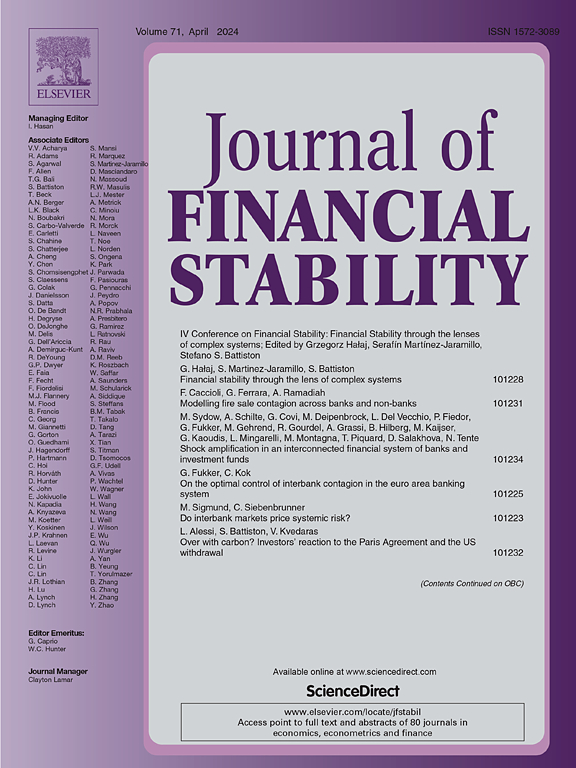The impact of CSR-engagement, board gender, and stock price synchronicity on female analyst stock coverage decisions
IF 4.2
2区 经济学
Q1 BUSINESS, FINANCE
引用次数: 0
Abstract
The present study investigates the impact of a target entity’s corporate social responsibility (CSR) credentials, board diversity, and stock return synchronicity on analyst coverage decisions. Based on more than 33,000 stock recommendations on UK listed companies, we significantly deepen and extend the relevant literature (Kumar, 2010; Li et al, 2013; and Li et al., 2024) in several important ways. We find female analysts are more likely than male analysts to impound CSR information into stock coverage decisions for entities with intermediate recommendations. For firms with more extreme economic prospects. i.e., at strong buy and sell levels, the positive effect of CSR performance on female analyst coverage weakens. After controlling for the CSR characteristics of a stock, results suggest female analysts are more likely to cover firms with gender-inclusive boards. Results accord with a narrative emphasizing female analysts’ weaker access to firms with less gender-inclusive boards. Our account adds new context and application to the emerging corporate finance literature on gender-based homophily. Finally, we report limited difference in the stock return synchronicity of firms covered by male and female analysts.
企业社会责任参与、董事会性别和股价同步性对女性分析师股票覆盖决策的影响
本研究调查了目标实体的企业社会责任(CSR)资质、董事会多样性和股票回报同步性对分析师覆盖决策的影响。基于 33,000 多条关于英国上市公司的股票建议,我们在几个重要方面大大深化和扩展了相关文献(Kumar,2010 年;Li 等人,2013 年;Li 等人,2024 年)。我们发现,与男性分析师相比,女性分析师更有可能将企业社会责任信息纳入中级推荐实体的股票覆盖决策中。对于经济前景更极端的公司,即处于强力买入和卖出水平的公司,企业社会责任表现对女性分析师覆盖率的积极影响会减弱。在对股票的企业社会责任特征进行控制后,结果表明女性分析师更倾向于覆盖董事会性别包容的公司。结果与强调女性分析师较难接触到董事会性别包容性较差的公司的说法相吻合。我们的研究为新出现的关于基于性别的同质性的公司财务文献增添了新的背景和应用。最后,我们报告了男性和女性分析师所覆盖公司股票回报同步性的有限差异。
本文章由计算机程序翻译,如有差异,请以英文原文为准。
求助全文
约1分钟内获得全文
求助全文
来源期刊

Journal of Financial Stability
Multiple-
CiteScore
7.70
自引率
9.30%
发文量
78
审稿时长
34 days
期刊介绍:
The Journal of Financial Stability provides an international forum for rigorous theoretical and empirical macro and micro economic and financial analysis of the causes, management, resolution and preventions of financial crises, including banking, securities market, payments and currency crises. The primary focus is on applied research that would be useful in affecting public policy with respect to financial stability. Thus, the Journal seeks to promote interaction among researchers, policy-makers and practitioners to identify potential risks to financial stability and develop means for preventing, mitigating or managing these risks both within and across countries.
 求助内容:
求助内容: 应助结果提醒方式:
应助结果提醒方式:


